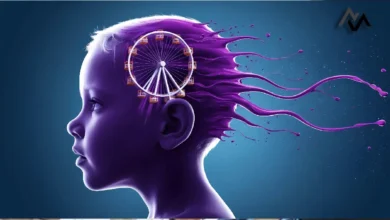Artificial Intelligence as an External Thought System: A New Frontier for the Human Mind

Artificial intelligence (AI) is no longer just a tool to automate tasks—it’s evolving into something far more profound: an external system for thought. This concept suggests that AI can interact with human minds, expanding our cognitive abilities and reshaping how we think. By acting as a form of external cognition, AI offers the potential to complement human intelligence, augmenting our mental capacities in unprecedented ways.
Understanding AI as an External Thought System
AI’s traditional role has been to process large amounts of data and perform tasks that typically require human intelligence, such as problem-solving and decision-making. However, as AI systems become more advanced, they are beginning to integrate more seamlessly with human thought processes. This integration positions AI as a kind of “external mind”—a system that can store, analyze, and even generate ideas, acting as a cognitive partner for humans.
Imagine a world where AI doesn’t just respond to commands but actively assists in the thinking process. It could suggest creative solutions, analyze complex problems, or even help in decision-making by providing data-driven insights. The interaction between human thought and AI can lead to enhanced cognitive abilities, making it possible for people to tackle more complex challenges.
Expanding Human Cognition Through AI
One of the most exciting prospects of AI as an external thought system is its potential to expand human cognition. Our brains have natural limits, but AI can help overcome these barriers by acting as an auxiliary cognitive tool. For instance, AI can handle vast amounts of data, perform real-time calculations, and predict outcomes faster than the human brain can process. By doing so, it provides humans with insights that would be impossible to generate alone.
This capability means that AI could enhance creativity and innovation, particularly in fields such as science, technology, and the arts. With AI taking over the heavy lifting of data processing and pattern recognition, human minds are free to focus on higher-level tasks, like strategic thinking, ethical considerations, and creativity.
The Ethical Considerations of AI Integration
As AI becomes more intertwined with human thought, it raises critical ethical questions. If AI systems begin to influence human thinking, to what extent should they be trusted with decision-making processes? There’s a fine line between AI as a helpful tool and AI exerting control over human cognition.
Transparency is key. AI systems must be designed to clearly explain their decision-making processes, ensuring that human users remain in control. Additionally, the interaction between AI and the human mind should prioritize ethical boundaries, especially when dealing with sensitive areas such as healthcare, security, and personal data.
Another concern is dependency. As AI becomes a more integrated part of our cognitive toolkit, there’s a risk that people may become overly reliant on these systems, weakening their own critical thinking and decision-making abilities. It’s essential to strike a balance, using AI to complement—not replace—human intelligence.
AI and the Future of Thought
The future of AI as an external thought system is filled with possibilities. As technology continues to evolve, AI could one day operate not just as a cognitive partner but as a full collaborator in human thinking. This could lead to groundbreaking advancements in all areas of life, from scientific discoveries to artistic expressions.
AI’s ability to analyze vast amounts of information, recognize patterns, and suggest innovative ideas makes it a powerful ally for human thought. However, the key to unlocking its full potential lies in developing AI systems that are not only intelligent but also ethical and transparent.
Conclusion
Artificial intelligence is transitioning from a simple tool to an external system of thought that complements and expands human cognition. As AI continues to evolve, its integration with human minds opens up new possibilities for creativity, problem-solving, and innovation. While the potential of AI is vast, careful consideration must be given to the ethical challenges and the balance between human control and AI assistance. The future of AI as a partner in thought is bright, but it will require thoughtful development to ensure it serves humanity’s best interests.




